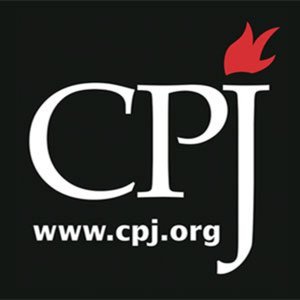Last week, China and nine other nations on the United Nations NGO Committee voted to reject an application for consultative status by the Committee to Protect Journalists. Beijing has long sought to suppress participation in the organization by both foreign groups and activists from China, while also recently stepping up controls on foreign NGOs at home.
As Samantha Power, the American ambassador to the U.N., pointed out on Twitter, the “Anti-NGO Committee” also turned down 34 other applications from a total of 37. At the opening on Monday of the sixty-sixth U.N. Department of Public Information/Non-Governmental Organizations Conference in Gyeongju, Korea, Secretary General Ban Ki-Moon expressed disappointment with the rejections:
One of the important lessons I have learned over the past 10 years as Secretary-General of the United Nations is the value of partnerships.
We need governments, the private sector and civil society. Without the participation of non-governmental organizations and civil society groups, no initiative, however visionary, is not possible, can be fully achieved. That’s a very valuable lesson I have learned.
I am such a strong believer in NGOs, I constantly call on governments to expand space, some political, economic, social space for NGOs to work freely, without any hindrance.
Four days ago, at the Jeju Forum for Peace and Prosperity, I denounced the shrinking democratic space, and I urged freedom for civil society organizations and non-governmental organizations and human rights defenders.
Unfortunately, that freedom is under threat, including at the last place this should happen: at the United Nations.
I am deeply disappointed that the Member States on [the] ECOSOC NGO Committee recently denied the Committee to Protect Journalists consultative status.
[…] I call on Member States to stop constricting NGO engagement. The United Nations should have a big tent under which everybody can have [inaudible] and freedom of movement. This is the approach we used to help forge the 2030 Agenda for Sustainable Development and the Paris Agreement on climate change. And NGOs are crucial to their success. [Source]
On Tuesday, the U.N.’s human rights office added its voice, noting also the exclusion of 11 LGBT groups from a looming conference on battling AIDS:
“We believe the decision not to allow this well-established NGO to take part in UN meetings, including those of the Human Rights Council here in Geneva, is unwise, unfair and arbitrary, and flies in the face of other initiatives by UN Member States to offer better protection to journalists worldwide,” said Rupert Colville, spokesperson of the Office of the UN High Commissioner for Human Rights (OHCHR), in a press briefing in Geneva earlier today.
Mr. Colville noted that CPJ is a “key and respected voice” on the issues of protecting journalists and press freedom, and said the statistics it provides on killings, attacks and imprisonment of journalists around the world are “widely viewed as among the most reliable in existence.”
He said that, in effect, the votes of just 10 States have meant that CPJ’s “voice and important research” continues to be excluded from all relevant UN debates and processes.
[…] The vote came after CPJ’s application, first made in 2012, had already been deferred seven times by the NGO Committee, Mr. Colville said. CPJ, an independent NGO that promotes press freedom worldwide, is headquartered in New York City and is made up of about 40 experts from around the world.
The spokesperson said that as High Commissioner Zeid Ra’ad Al Hussein notes in a report that has just come out and will be formally presented to the Human Rights Council on 20 June, “the deferral of a large number of NGO applications for consultative status, sometimes for years on end, and apparently for arbitrary reasons, has deprived international debate of important civil society contributions.”
[… “We] see more and more evidence of more and more States clamping down on the freedoms of expression association and assembly, with the media and human rights defenders in the frontline,” Mr. Colville stressed.
“While this may be in the interests of authorities wishing to crush criticism and retain power, it is clearly not in the interests of their populations. This unfortunate episode involving CPJ is emblematic of this unfortunate and very negative trend,” he added. [Source]
The applications may yet be approved by votes of the full 54-member Economic and Social Council. South Africa, which disappointed many by voting against the CPJ, has promised to support it at that stage.








